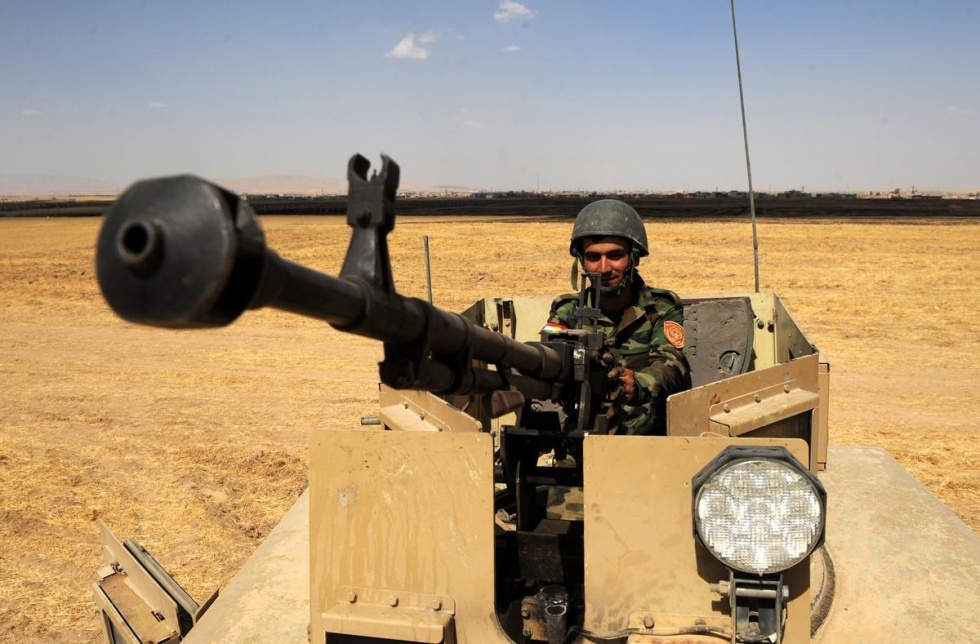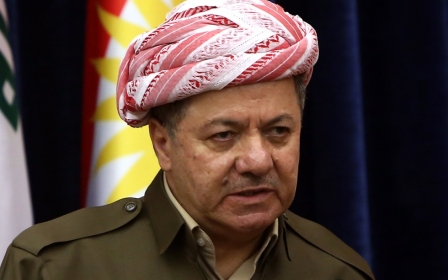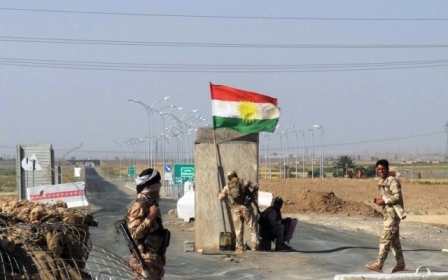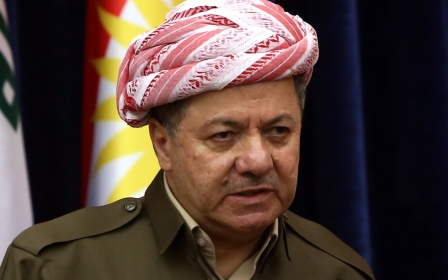Iran balks at prospect of Kurdish statehood

As Iraq continues to disintegrate, its powerful eastern neighbour, Iran, struggles to keep up with a wide range of issues and threats which in due course may jeopardise Iranian national security.
For Iran, nothing is as potentially problematic and threatening than the prospect of Kurdish independence. Kurdish leader Massoud Barzani’s dramatic break with his customary silence on the question of Kurdish statehood has raised the stakes for all key regional and international players by signalling determined political intent in Erbil to push for independence.
An independent Kurdistan undercuts Iranian influence in Iraq. More worryingly for the Iranians, a nascent Kurdish state signals a permanent base for American and Israeli influence on Iran’s doorstep. And as if this was not bad enough, Kurdish independence in Iraq will inevitably embolden irredentist Kurdish elements in Iran, which at a minimum, complicates the Islamic Republic’s political and security calculations in the country’s Kurdish-majority provinces in the west.
The threat of irredentism
It is difficult to escape the conclusion that Iraq’s Kurdish leaders have displayed extremely cynical and irresponsible opportunism at modern Iraq’s gravest hour. As the highly sectarianized and genocidal-prone militia group styling itself as the Islamic State (IS) spearheaded a massive rebellion in Iraq’s Sunni heartlands, Iraqi Kurds exploited the unprecedented security vacuum by occupying oil-rich Kirkuk and other so-called “disputed” areas. These disputed areas stretch from the heart of Nineveh province in the north all the way to Khanaqin close to the Iranian border.
The takeover of Kirkuk – touted as the Kurdish “Jerusalem” – fulfils historic Kurdish ambitions to assume control of all areas it regards as Kurdish territory. It is the fulfilment of this ambition – coupled with control over the area’s oil reserves – that has prompted Barzani to abandon decades of covert and deceptive posturing in favour of a formal bid for independence.
For Iran, this bid could not come at a worse time. Iranian allies in Baghdad are under intense pressure to contain Iraq’s centrifugal forces. The staggering weakness and incompetence of Iraq’s American trained armed forces has forced Iran to intervene directly in the latest Iraqi civil war. Besides the burden on resources, Iran has already suffered human losses, with reports of an Iranian pilot and at least one member of the elite Qods force killed fighting IS-led insurgents.
Whilst Iran has adapted to the post-1991 geopolitical reality in Kurdish Iraq, which ushered extreme autonomy for the Kurds, and has indeed developed a working relationship with key Kurdish leaders, there are many reasons why the Islamic Republic cannot accommodate Kurdish statehood.
In terms of regional geopolitics, Iran had been capitalising on Iraq stabilising under a Shiite-led government. This is one reason why the IS-led rebellion poses a threat to regional Iranian interests; it has energised Iraq’s centrifugal forces and led to the de facto partition of the country into three constituent parts. The Kurdish bid for independence would irreversibly formalise the breakup of modern Iraq. This undercuts Iranian influence in Iraq, as Iran prefers to exert influence on a unified Iraq (albeit one dominated by the Shiites), as opposed to just a de facto Shiite state in the south of the country.
In the past two decades there have been persistent (albeit unproven) rumours of a strong Israeli presence in the areas controlled by the Kurdistan Regional Government (KRG). In particular, there has been persistent speculation on Israeli training of the Kurdish armed forces (Peshmerga) and the KRG’s intelligence and security apparatus. These rumours and speculations will not have been assuaged by Israeli Prime Minister Benyamin Netanyahu’s brazen declaration of support for Kurdish independence.
From Iran’s point of view, Kurdish independence poses the very real risk of Israeli intelligence establishing a base on the country’s western borders, a base that doubtless would be used for espionage and sabotage operations inside Iran. Even if these fears are exaggerated, there is no doubting that an independent Kurdish state would be even more accommodating of Washington’s wishes, and that is clearly not in line with Iranian interests.
On the issue of Iran’s own Kurdish population, Iranian strategists and policy makers are fearful that the political and security gains made in the past three decades may be undermined by the emergence of an independent Kurdish state next door. Over the past three decades the Islamic Republic has systematically destroyed separatist Kurdish nationalist groups, save for a low intensity insurgency by PEJAK, the Iranian branch of the PKK.
There are well grounded fears that an independent Kurdish state, sheltering under Washington and Tel Aviv’s military and security umbrella, may step up support to Kurdish irredentists inside Iran’s borders. It is noteworthy that the KRG already officially hosts remnants of Iranian Kurdish nationalist organisations like the Kurdistan Democratic Party of Iran and the communist Komala. The Kurdish authorities also tolerate PEJAK activities on the mountains bordering Iran.
A reactive posture
Despite its position as the most influential power in Iraq, Iran is struggling to keep up with the fast changing events next door. Iran failed to predict the IS-led rebellion and is now paying a heavy price for complacency, namely the deeply mistaken belief that Iraq was stabilising under a Shiite-led government.
Similarly Iran failed to predict the scale of Kurdish cynicism and opportunism. This is in part due to a steady loss of influence in the KRG zone since 2003. The dominant Kurdistan Democratic Party (led by Barzani) has lukewarm ties to Iran. The Islamic Republic has far stronger and reliable tries to the rival Patriotic Union of Kurdistan (PUK), which has been in sharp decline since the departure of its ailing leader Jalal Talabani.
While Iran cannot prevent the breakup of Iraq nor abort the birth of a Kurdish state, it can do much to delay these outcomes. To begin with Iran needs to strike the right balance between supporting its natural allies in Shiite Iraq and advancing a suitably nuanced outreach to Sunni and Kurdish constituencies. By appearing to have a sectarian policy, Iran is aggravating Iraq’s deep-rooted centrifugal features. The resulting antagonism and polarisation only benefits the Kurdish leaders in Erbil.
- Mahan Abedin is an analyst of Iranian politics. He is the director of the research group Dysart Consulting.
The views expressed in this article belong to the author and do not necessarily reflect the editorial policy of Middle East Eye.
Photo credit: A peshmarga keeps watch and aims at armed groups led by Islamic State of Iraq (AA)
Middle East Eye propose une couverture et une analyse indépendantes et incomparables du Moyen-Orient, de l’Afrique du Nord et d’autres régions du monde. Pour en savoir plus sur la reprise de ce contenu et les frais qui s’appliquent, veuillez remplir ce formulaire [en anglais]. Pour en savoir plus sur MEE, cliquez ici [en anglais].





